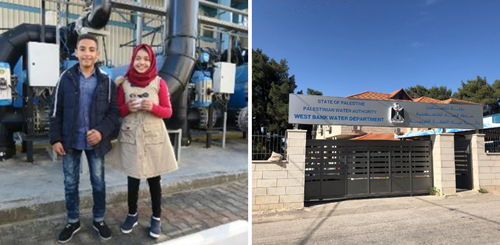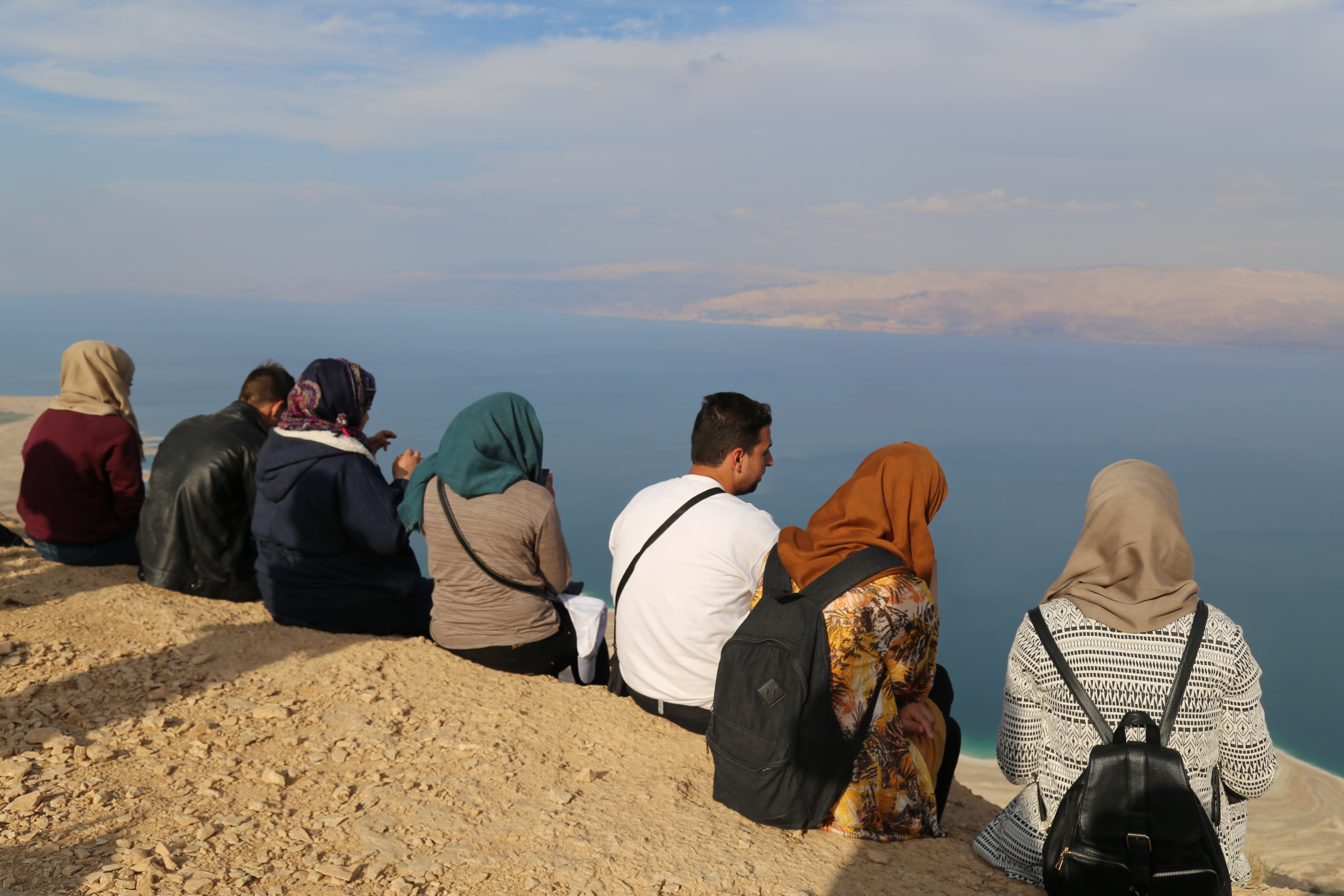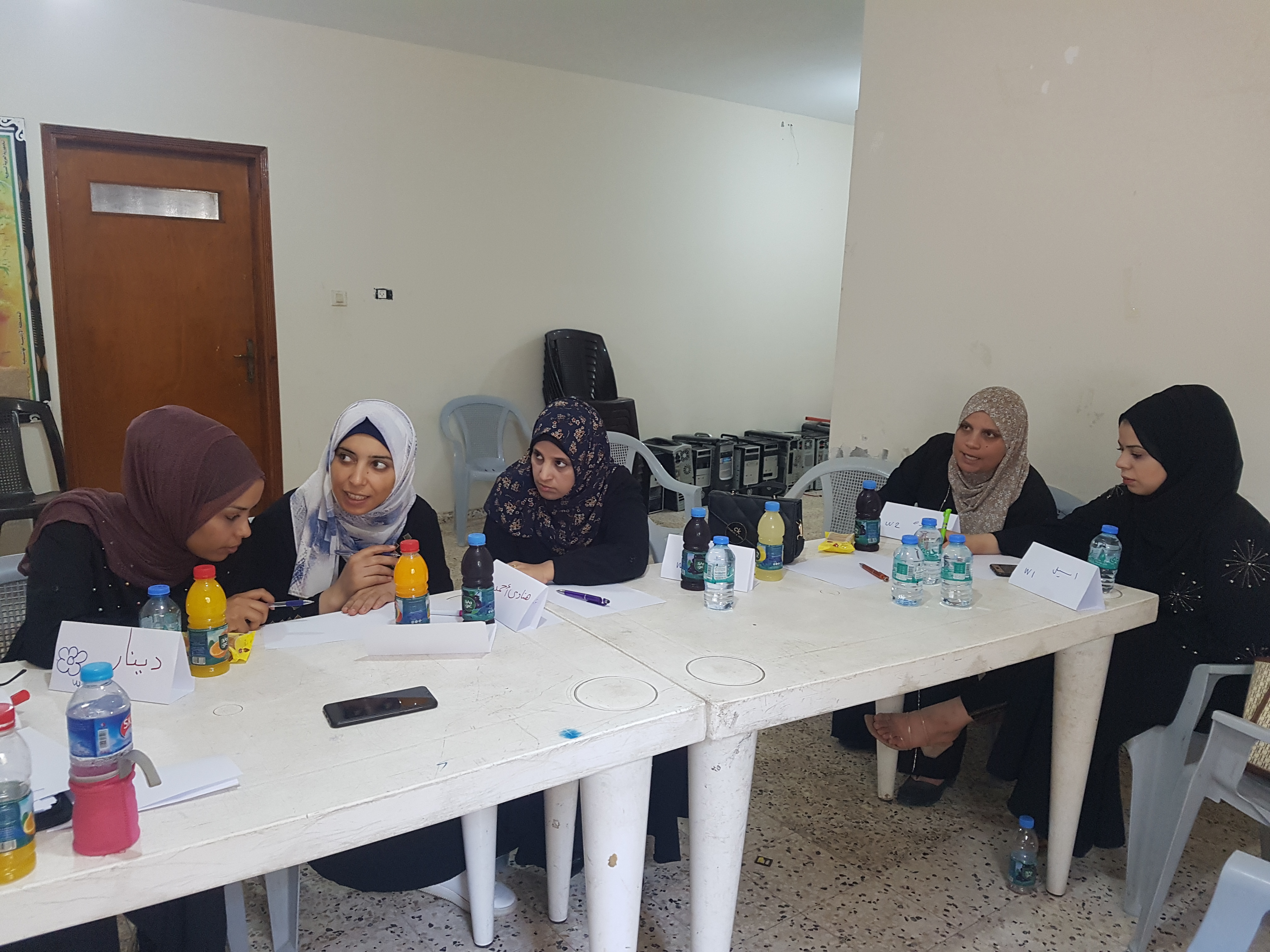Project
From water security to human rights: a journey of 31 projects delivering transformative impact in Palestine

Project
NIRAS has a long history of working in fragile and conflict-affected areas and, for more than two decades, we have had a dedicated team working on projects promoting peace and stability across the globe. Since 2008, we have provided support to projects in the occupied Palestinian territory where NIRAS has helped clients and partners to find practical solutions in a variety of sectors.
NIRAS’ work in Palestine began with an evaluation for Sida’s country programme more than 16 years ago. At that time, we assessed Sweden’s interventions aimed at creating conditions to improve Palestinian lives. Since then, we have managed a number of projects in different sectors in both the West Bank and Gaza where we worked closely with government authorities, civil society, the media, the private sector and many local technical and professional experts.
number of projects NIRAS has implemented in Palestine
total fee value of implemented projects
Our clients: Sida and Swedish Consulate, the EU, Danida, Swiss Development Cooperation, NORAD, The Netherlands, AFD, Ministry for Foreign Affairs Finland, and Emmaus Björkå.
Project beneficiaries:
Since 2013, NIRAS Sweden AB has been registered as an international company in the OPT, where we have a tax file with the tax authority. NIRAS had an office in Ramallah between 2013 and 2018.
At the time of writing, NIRAS has two projects ongoing. From the beginning of this year until January 2026, we are providing technical assistance to the Palestinian Water Authority (PWA) to facilitate the establishment of a National Water Company in the Palestine. The project is funded by the European Union (EU). The transformation of the West Bank Water Department (WBWD) into a state-owned company was foreseen in the 2014 Water Law. The goal is to ensure that the new company can supply bulk water more efficiently to local and regional water suppliers. The water sector in Palestine is currently characterised by institutional weaknesses and has insufficient financial sustainability for long-term operations. Transforming the WBWD into a state-owned company will contribute to the economic viability of the entire sector and ensure improved customer relations and access to clean water and sustainable services for Palestinian residents.
The NIRAS project team is working with the WBWD to optimise bulk water supply management and improve its capacity and performance in order to make the reform possible. Up to now we have done an assessment of the current bulk water situation and are in consultation regarding the strategic development plan of the Strategic Development Pland for the next three years. In the next steps, the valuation of asset will be updated. However, the current war in Gaza and instability in the region is clearly presenting challenges to progress.
“This project is important because it touches on the most basic aspect of human rights – access to water - and aims at improving the sustainability of the water supply system in Palestine,“ says NIRAS project manager Anna Sokołowska. “Its success is key for the water sector reform being advocated by key stakeholders and also has the potential to unlock further funding in the sector.”

Another ongoing assignment related to the water sector is a final evaluation of the EU’s support to the water sector in Gaza. The evaluation covers four water supply facilities, including the Southern Gaza Desalination Plant in Deir el-Balah, serving Khan Younis and Rafah, and assesses the relevance, efficiency, effectiveness, impact, sustainability and EU-added value of the interventions. Our team of four Palestinian specialists with expertise in desalination, infrastructure, gender and tariff calculation shows how comprehensive this evaluation was. They were led by an experienced evaluator and team leader, who has worked in Palestine multiple times. Despite some delays and challenges with getting permits approved by the Israeli authorities, the team completed the fieldwork in Gaza in August 2023. Apart from visits of the facilities, interviews with implementing partners and water department officials, a household survey and focus groups were conducted to collect the views of citizens as water users. While the team managed to complete the evaluation report and submit it at the end of October 2023, the escalation of conflict in Gaza threatens the safety of our experts and the functioning of EU-funded infrastructure in the Gaza Strip. "It is distressing to wonder about our friends’ and colleagues' safety, and to imagine the extent of the damage to civilian infrastructure, some of which we were evaluating just a few months ago", says evaluation Team Leader, Marie Körner. Meanwhile, the EU, as the main international donor to Palestinians, reviewed its portfolio in the country in November and announced that new priorities will be identified on the ground.
Building a free and accountable media
In a very different sector, we recently concluded the Middle East and North Africa (MENA) cohort of the Sida-funded advanced International Training Programme in Self-regulation of the Media Sector (ITP Media). Running since 2018, the overall ambition of this programme is to promote and contribute to a media environment characterised by freedom of expression, pluralism and diversity. Independent and trustworthy media, along with an open public debate, are crucial pillars of democracy, serving as safeguards against disinformation and propaganda from various sources. ITP Media is a global programme and had participants from four MENA countries: Palestine, Lebanon, Tunisia, and Morocco. Representatives from 14 media outlets and related organisations participated from Palestine and together they delivered a Change Initiative as part of the programme. This is essentially a project that can contribute to the achievement of the programme’s objective and necessary long-term change process on a national level.
“The formation of the Palestinian team was, in itself, a success story and an achievement of one of the most important operational goals in the media professional sector, specifically with regards to self-organisation,” says Nibal Thawabteh, the National Facilitator. “We managed to bring them together at one table and give everyone a chance to express their opinions and listen to other opinions.”

Civilian missions to support peace and stabilisation
Since 2008, NIRAS has been managing the Danish Deployment Facility for Peace and Democracy (DFPD) on behalf of the Danish Ministry of Foreign Affairs. The Facility deploys Danish experts to civilian crisis management missions operated by the EU (Civilian Common Security and Defence Policy missions) and other international actors in conflict or fragile settings across the world. During 2012-2022, alongside their European colleagues, 12 Danish experts deployed to EUPOL COPPS (the EU Coordinating Office for Palestinian Police Support) assisted the Palestinian Authority in building its institutions for a future Palestinian state, focused on security and justice sector reforms, and improving the safety and security of the Palestinian people. The Mission formed part of the wider EU effort to support Palestinian state building, in the context of working towards a comprehensive peace, based on a two-state solution. In addition, one expert was seconded to the EU Border Assistance Mission in Rafah through the DFPD. Further back, the DFPD, deployed seven experts to the now closed Temporary International Presence in Hebron, a civilian observer mission supported by the Israeli Government and Palestinian Authority. TIPH observed and reported on breaches of the agreements between the two parties in Hebron as well as on violations of international humanitarian law and international human rights law.
The DFPD does not presently have deployed experts in Palestine, but expects to have again in the future.
Evaluating progress in diverse Sida projects
NIRAS monitoring and evaluation experts deliver demand-driven, rigorous evaluations and robust monitoring systems that support adaptive management and learning and lead to more evidence-based critical decisions. We have conducted several evaluations for clients concerning projects in Palestine, but particularly for Sida. From 2017 to 2020, we assessed Diakonia’s multi-year programme for International Humanitarian Law’s resource desk in Jerusalem followed by a full review of the Jerusalem programme. The evaluation aimed to increase accountability among key duty bearers and stakeholders. In 2019, we conducted an evaluation of a Sida-funded project that aimed to foster regional cooperation on transboundary water management in Palestine, Jordan and Israel implemented by the Middle East Desalination and Research Centre. This entailed an assessment of the project’s results and provided recommendations on how Sida could better support the Centre in the future to fill gaps from other donors while being as relevant as possible to the priorities of Swedish development aid. In the same year, we did a mid-term evaluation for the Middle East Investment Initiative, which had been managing a Sida-funded SME technical assistance and loan guarantee programme to finance and enhance financial literacy of SMEs in the marginalized areas of the Gaza Strip, East Jerusalem and Area C of the West Bank. Several years earlier, we also conducted an evaluation of the achievements of Sida’s private sector portfolio with an extra focus on their support to the Palestinian International Business Forum. The study provided Sida with approaches and interventions to consider in support of job creation and the development of business-friendly environment such as access to finance, standards, public administration and local governance.
Promoting gender equality and human rights
NIRAS has a strong track-record of managing gender and human rights projects. In Palestine, our most recent assignment was for the Environment Quality Authority for whom we developed a gender action plan with funding from the Swedish Environmental Protection Agency. The overall aim was to improve environmental protection and health in Palestine by improving targeting of health risks for women and men taking their physiological differences and different exposure to pollution and hazardous chemicals into consideration. The end result supported the Authority’s efforts to ensure more inclusive regulations and inspections and develop gender-aware information material.
Together with Birzeit University, for five years NIRAS managed the funds for the Human Rights and International Humanitarian Law Secretariat, an initiative jointly funded by Sweden, Denmark, The Netherlands and Switzerland. Although it ceased operations in 2018, the programme aimed to contribute to the effective realisation and adherence to human rights and international humanitarian law in Palestine. Established to provide mainly funding and capacity building to CSOs focused on resilience, social economic rights, psychosocial support, and freedom of movement and other rights, the Secretariat facilitated policy dialogue and networking between the beneficiaries, donors, and other stakeholders in Palestinian society. About 60 Palestinian and Israeli NGOs gained access to a €20-million grant fund and associated training.

These are just a few examples of the 31 projects NIRAS has supported over the last 16 years in Palestine. Others include a technical assistance project supporting the Palestinian Ministry of Agriculture to help boost the small ruminant sector in the West Bank, public awareness campaigns on nutrition as well as sanitation and hygiene, studies for programme design, feasibility studies and a longer running land administration project that improved the design and implementation of a land registration system in municipalities, villages, and project communities.
If you are interested to learn more, contact us on the link below.


